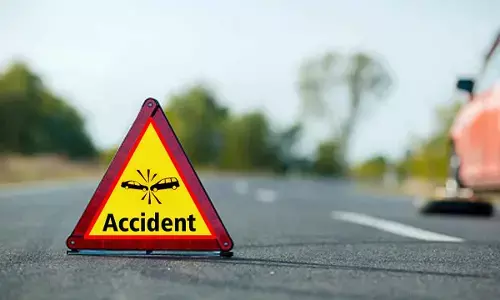Caffeine overdose leaves a 21-year-old dead in Australia : FDA warns consumers using in large quantities

A 21-year-old died from an overdose on a legally available a substance marketed as a dietary supplement in Australia.
A 21-year-old died from an overdose on a legally available a substance marketed as a dietary supplement in Australia. The victim, Lachlan Foote placed caffeine powder on New Year's Eve 2018 in his protein shake.
His father, Nigel Foote, wrote on Facebook that he believes Lachlan might have gotten the powder from a friend—there was no record of buying the substance from Lachlan, which can be bought online.
Nigel wrote that he believes that Lachlan has not been adequately warned of the dangers of caffeine powder as his son tragically placed a fatal amount in his protein shake. This is not the first death of caffeine powder. In 2014, after overdosing of caffeine powder, a teenager in Ohio died days before graduating from high school. Caffeine powder is an extremely potent substance to be consumed only in very small quantities.
In just one teaspoon of caffeine powder, the amount of caffeine is equal to about 16 small cups of coffee, previously reported by Health. For the same reason they drink coffee, people use caffeine powder—it gives them a jolt. "Caffeine is a stimulant that gives an advantage to people. It's also an athlete performance enhancer.
Some people find that caffeine also helps curb their appetite so some people try it for weight loss," says Health Julie Upton, an RD based in San Francisco. In 2018, the FDA announced a better regulation of caffeine powder. The administration said that when sold to consumers in large quantities, "pure or highly concentrated caffeine powder or liquid forms" would be outlawed. "Less than two tablespoons of some powdered formulations, pure caffeine may be fatal to most adults, while even smaller amounts may threaten children's lives," the FDA said in a statement. But while caffeine powder is more difficult to get your hands on the US, it has not been completely outlawed by the FDA.
A quick search of Google can lead to multiple online retailers shipping caffeine powder to you directly. "If you buy a caffeine-added sports nutrition product, always look at the amount of caffeine in the product. It has to be on the package label," says Upton. Caffeine powder should be measured on a micro-scale because it can be harmful even a pinch higher than the recommended amount, we noted earlier.
Pure caffeine can have side effects that are far more serious than the usual nervousness of drinking one too many cups of coffee. Caffeine powder can increase or erratic your heart rate. It can also lead to seizure and death. This makes caffeine powder available all the more scarce. On Facebook, Lachlan's father wrote: "It's just crazy that something so dangerous is available so readily. Please warn your friends, talk to your kids...and maybe check your kitchen cupboards...pure caffeine powder looks like any white powder...but you'll be killed by a heaped teaspoon."
What is a caffeine overdose?
Caffeine is a widely available substance that gives a legal high. It can increase alertness and improve performance.
The downside is that too much is toxic.
A powerful stimulant, excess caffeine leads to jitters, irritability, nervousness, restlessness, a racing pulse, palpitations, sweating, nausea, anxiety, and insomnia.
People differ in their sensitivity to caffeine, with some developing symptoms at lower doses than others.
Children are more likely to have problems from caffeine, such as restlessness and even seizures.
Some products contain huge amounts of caffeine – and with high doses like this, taken in quickly, people can suffer other caffeine effects too, including abdominal cramps and diarrhea.
Taking this several times a day is so dangerous because of it can provoke a rapid pulse and high blood pressure, which can worsen a tendency to heart disease.
Stopping is hard because withdrawal symptoms can be so unpleasant. They include headaches, drowsiness, depression, anxiety, irritability, lack of concentration, clumsiness, and even aches and pains.
Mood swings are common too.
But if you're consuming too much caffeine a day you really should try to cut down, despite the symptoms. Rather than go cold turkey, it's best to cut down slowly.
So cut out a few caffeine drinks per day – switch to a caffeine-free drink or something like juice. In the long-term, you'll see your blood pressure lower, get better sleep, have fewer mood swings, decreased anxiety and headaches will decrease.
In America, the US Food and Drug Administration (FDA) says that a total daily intake of 400mg of caffeine is unlikely to pose a risk of serious harm to most adults.
A typical latte bought at a chain cafe can contain around 225mg of caffeine.








